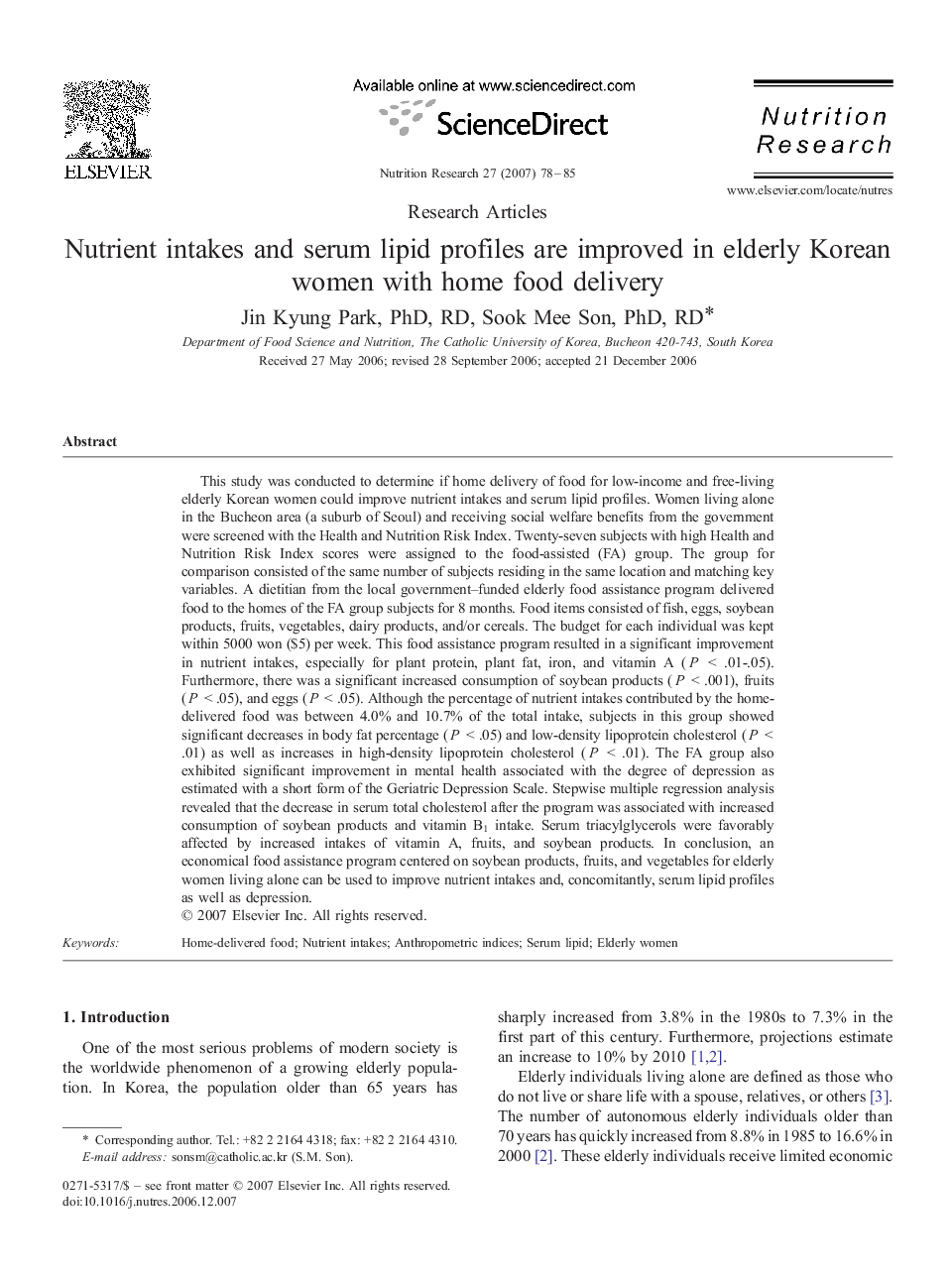| Article ID | Journal | Published Year | Pages | File Type |
|---|---|---|---|---|
| 2809733 | Nutrition Research | 2007 | 8 Pages |
Abstract
This study was conducted to determine if home delivery of food for low-income and free-living elderly Korean women could improve nutrient intakes and serum lipid profiles. Women living alone in the Bucheon area (a suburb of Seoul) and receiving social welfare benefits from the government were screened with the Health and Nutrition Risk Index. Twenty-seven subjects with high Health and Nutrition Risk Index scores were assigned to the food-assisted (FA) group. The group for comparison consisted of the same number of subjects residing in the same location and matching key variables. A dietitian from the local government-funded elderly food assistance program delivered food to the homes of the FA group subjects for 8 months. Food items consisted of fish, eggs, soybean products, fruits, vegetables, dairy products, and/or cereals. The budget for each individual was kept within 5000 won ($5) per week. This food assistance program resulted in a significant improvement in nutrient intakes, especially for plant protein, plant fat, iron, and vitamin A (P < .01-.05). Furthermore, there was a significant increased consumption of soybean products (P < .001), fruits (P < .05), and eggs (P < .05). Although the percentage of nutrient intakes contributed by the home-delivered food was between 4.0% and 10.7% of the total intake, subjects in this group showed significant decreases in body fat percentage (P < .05) and low-density lipoprotein cholesterol (P < .01) as well as increases in high-density lipoprotein cholesterol (P < .01). The FA group also exhibited significant improvement in mental health associated with the degree of depression as estimated with a short form of the Geriatric Depression Scale. Stepwise multiple regression analysis revealed that the decrease in serum total cholesterol after the program was associated with increased consumption of soybean products and vitamin B1 intake. Serum triacylglycerols were favorably affected by increased intakes of vitamin A, fruits, and soybean products. In conclusion, an economical food assistance program centered on soybean products, fruits, and vegetables for elderly women living alone can be used to improve nutrient intakes and, concomitantly, serum lipid profiles as well as depression.
Related Topics
Life Sciences
Biochemistry, Genetics and Molecular Biology
Endocrinology
Authors
Jin Kyung PhD, RD, Sook Mee PhD, RD,
